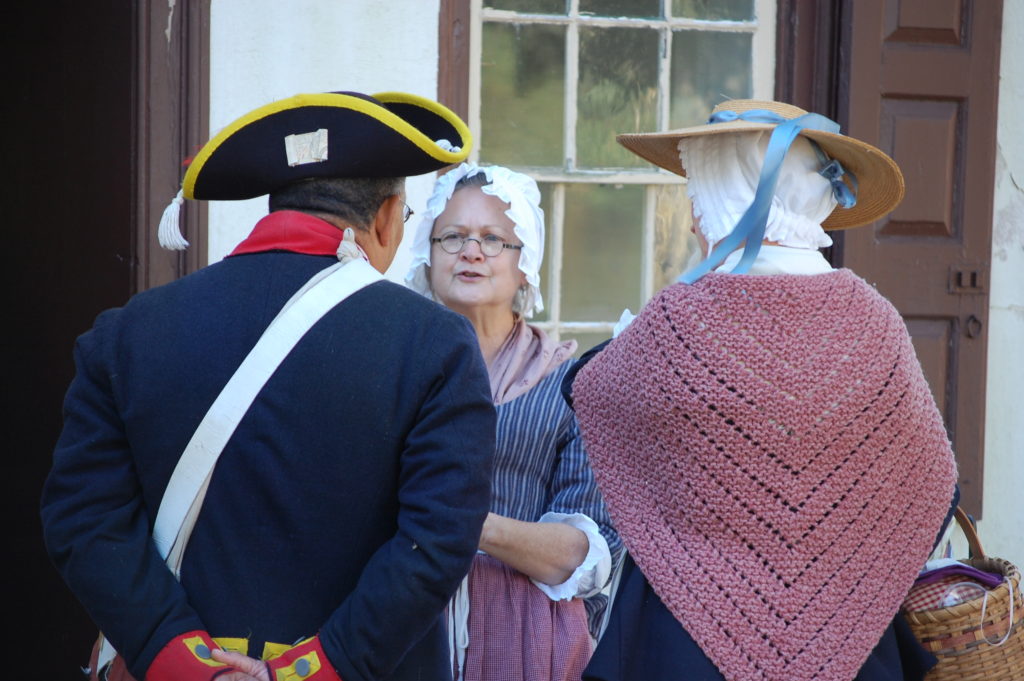
Instead of a single, straightforward narrative about life before and after the Christmas night crossing in 1776, imagine it as a mosaic, each piece a different perspective.
That’s how park curator Kimberly McCarty says she approaches the park’s annual lecture series. “With every one of these lectures, we’re shining a light on different parts of the larger interpretation,” she explains.
This year’s lecture series begins on April 19 with Matthew Costello, senior historian of the White House Historical Association. His new book, The Property of the Nation: George Washington’s Tomb, Mount Vernon, and the Memory of the First President, explores the evolution of Washington’s memory during the early republic by focusing on his tomb.
“While most of his book focuses on during and after Washington’s presidency, its overarching theme is the legend of Washington, which started during The Ten Crucial Days,” McCarty says.
Lectures by Kim Burdick and Friederike Baer, PhD, set for May 31 and November 8, respectively, will shed new light on the physical health and mindset of the soldiers who occupied McConkey’s Ferry Inn and the surrounding area.
Burdick, the founder and chairman of the American Revolution Roundtable of Northern Delaware, will examine how fever and infections killed more soldiers than battle wounds. She wrote about the subject in an article titled “Fever” that was published in the Journal of the American Revolution.
Dr. Baer, an associate professor of history at Penn State-Abington, will explain how the introduction of German troops became a rallying point for the colonists. Her article on the subject, “The Decision to Hire German Troops in the War of American Independence: Reactions in Britain and North America, 1774-1776,” appeared in the journal Early American Studies.
“The lectures are more academic by nature, but they’re designed to be accessible to anyone who has an interest in the topic,” says McCarty, who will lead two of the lectures herself, one on the crucial role of ferries and taverns in McConkey’s Ferry during the revolution and another profiling some of the lesser-known figures of the crossing. “You don’t need to come with any prior knowledge. The lectures are thorough and engaging, so no one should be concerned about not being able to follow along.”
In September, Bucks County’s own John Rees will highlight the experiences of free and enslaved soldiers of color during the Revolutionary War that comprise his book, They Were Good Soldiers: African-Americans Serving in the Continental Army, 1775-1783.
“As an author, you’re rarely in a position to receive direct feedback,” McCarty says. “Having an opportunity to engage with an audience is a big part of the reason they enjoy participating in our lecture series. It’s not every day those of us in the audience have the chance to interact with authors, either.”
Registration is required for each lecture. Use the links below to read more about each lecture and learn how to register.
Sunday, April 19 at 2 PM
The Property of the Nation: George Washington’s Tomb, Mount Vernon and the Memory of the First President with Dr. Matthew Costello, Senior Historian of the White House Historical Association
Sunday, May 31 at 2 PM
Fever and Sickness in the Continental Army with historian Kim Burdick
Sunday, September 13 at 2 PM
They Were Good Soldiers: African-Americans Serving in the Continental Army with Bucks County historian John U. Rees
Sunday, October 18 at 1:30 PM
Ferries and Taverns During the Revolution with Washington Crossing Historic Park Curator Kimberly McCarty
Sunday, November 8 at 2 PM
The Decision to Hire German Troops in the War of American Independence with Dr. Friederike Baer, Associate Professor of History at Penn State Abington
Sunday, December 6 at 7 PM
Who Was Here in 1776? with Washington Crossing Historic Park Curator Kimberly McCarty

